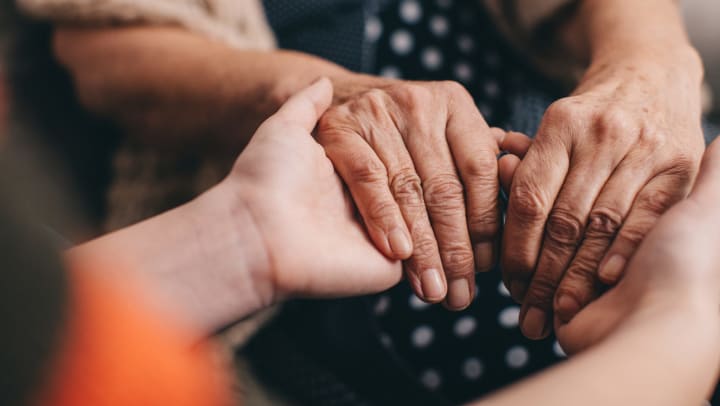Stress can have a damaging effect on our bodies. It's important to take conscious action to reduce it, especially during times like this. Brightwater Senior Living shares some of the dangers of too much stress and offers exercises and activities that help seniors reduce their stress.
The Signs & Symptoms of Stress
Knowing what to look for when it comes to the signs and symptoms of stress in your loved one can be an important step in reducing its effects and the long-term repercussions it has on them. Fortunately, the human body has a way of showing when it is in duress. If your loved one has not or cannot effectively communicate that they are overwhelmed, fret not. Here are the signs and symptoms to watch out for:
Aches & Pains
Low energy, aches, and pains can be some of the more subtle symptoms of stress. With an older loved one, it can be difficult to differentiate between what’s normal for an aging body and what are physical signs of stress. Keep in mind that this could be a more recent development in your senior’s mood and demeanor to help determine the difference between the two.
‘Our Second Brain’
The gastrointestinal tract has a direct relationship with the brain – all connected by a complex set of nerves. In fact, the gut is often referred to as “our second brain.” Emotional distress can have either an immediate or delayed reaction with the digestive system. Watch for signs of stomach and intestinal reactions, including gas, bloating, diarrhea, constipation, acid reflux, and general abdominal discomfort.
Fatigue
It can be challenging to know if your loved one got a night of restful sleep. Keeping an eye out for general signs of fatigue and drowsiness can be a telltale sign that they are not resting well or sleeping enough.
How Stress Affects Your Loved One
Beyond physical symptoms, your loved one may also be experiencing the emotional impacts of stress. A change in your senior’s mood is often an indicator that they are feeling upset. Notice if they have been irritable, easily frustrated, or if they have shown any physical body symptoms like the ones listed above. They might also be displaying signs of depression or anxiety. The long-term effects of stress can not only have a drastic impact on their brain but also the ways in which their body changes – mental health decreases and the physical body ages much more rapidly.
Effective Ways to Reduce Stress
These stress management techniques are excellent ways to alleviate uncomfortable mental and physical side effects in your loved one’s life:
- Physical Exercise – Walking, yoga, aerobics, dancing, swimming, or playing a game
- Social Connection – Expressing feelings, venting, communicating, or sharing stories
- The Sensory Technique – Focus attention on sight, smell, taste, sound, and touch
- Reduce Caffeine & Processed Foods – Coffee, sweets, artificial and chemical ingredients
- Self-Care Techniques – Writing, playing, resting, laughing, and pampering
- Professional Care – Psychologist, doctor, and/or psychiatrist support
Visit the Brightwater Senior Living blog today for more health tips and ideas to help your loved one live a healthy, comfortable, and stress-free lifestyle.
